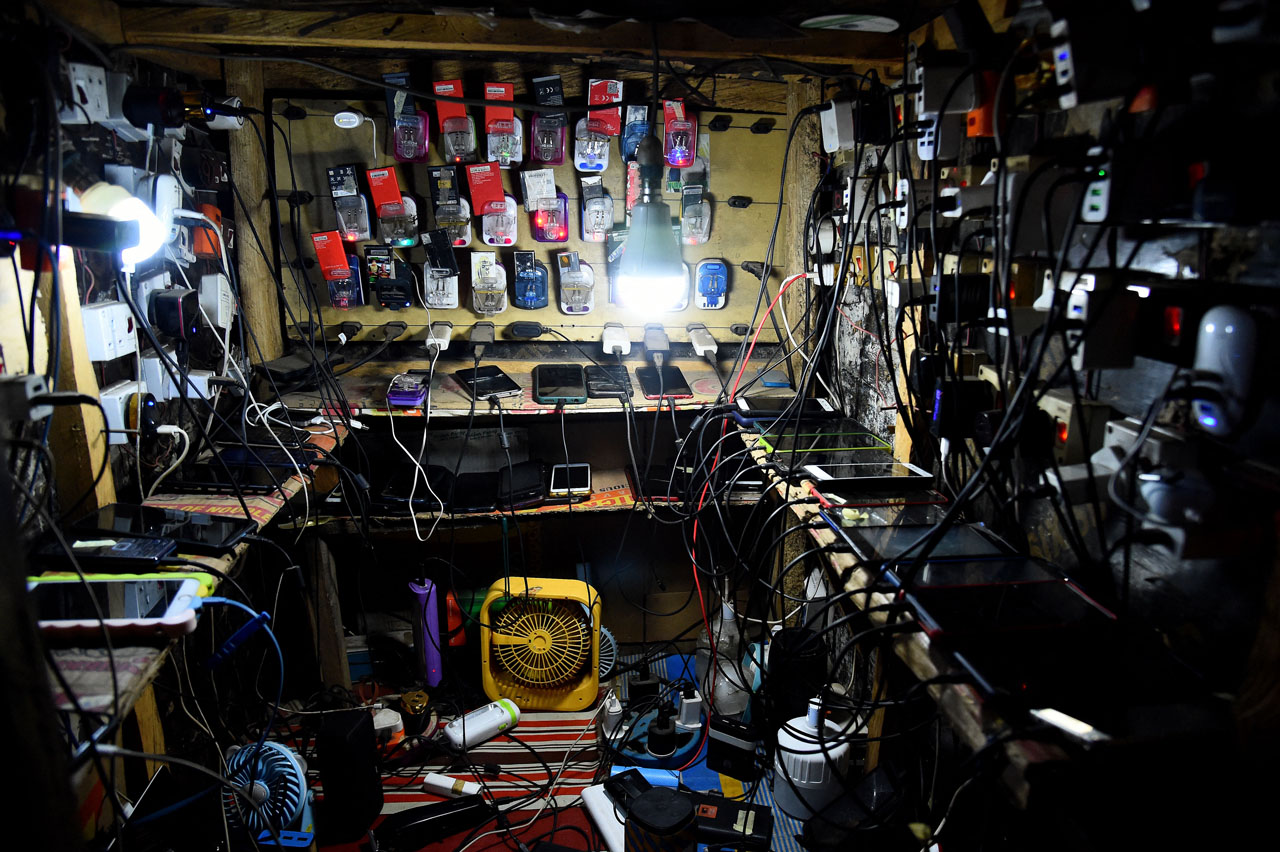
But extended collapses of the power grid over the last several weeks have combined with a global hike in diesel prices to create one of the country’s worst recent energy crises.
Many businesses rely on diesel generators to keep the lights on when power is out, and since Ukraine’s crisis doubled fuel prices in Nigeria, operating costs are sky-high. (Photo by PIUS UTOMI EKPEI / AFP)
Some business owners have decried the drop in power being supplied by Ikeja Electric(IE) Plc and Eko Electricity Distribution Company (EKEDC) in some parts of Lagos State.
They made their views known in interviews with the News Agency of Nigeria (NAN) on Saturday in Lagos.
NAN reports that the state had witnessed epileptic power supply in the past few weeks, causing hardships to business owners.
Confirming the situation on Saturday in a statement on its website, EKEDC said there was a significant drop in load allocation to its network from the Transmission Company of Nigeria (TCN).
“This has led to massive load shedding.
Kindly bear with us as we are currently working with our TCN partners for a swift resolution. We sincerely apologise for the inconvenience,” the DisCo said.
However, a printer, Mr Yakuba Aigbona, said the power situation in Coker area of Surulere had been very poor.
“It is unfortunate that I have to rely on a generator for running my business and with the high cost of diesel, things have not been easy.
“I am begging EKEDC to come to our rescue by finding a lasting solution to this problem because even when others have light, we don’t normally have which is very frustrating,” Aigbona said.
Another businessman, Mr Michael Ajakaiye told NAN that he was paying about N40,000 bill monthly for his three-bedroom office without enjoying regular supply.
“My office is at Lagos Island and I can tell you categorically that the supply has dropped in recent weeks and we have been relying on generators to run our operations,” he said.
Mr Uche Madu, a beer parlour operator in the Iyana-Ipaja area, said the epileptic power supply was affecting his business, forcing him to close earlier than the usual time.
He said: “We close around 9.00 p.m. now because there is no light and we cannot power our generator when the customers are few.
“In the past when the supply was better, we used to stay until 11.00 p.m. whether there were customers or not but we can’t do that now.”
A group, the All Electricity Consumers Protection Forum, had written a letter to the Nigerian Electricity Regulatory Commission (NERC), urging the body to halt the implementation of Service Reflective Tariffs(SRT) by the DisCos.
The letter signed by the group’s National Coordinator, Mr Adeola Samuel-Ilori, said the DisCos had failed to live up to their end of the bargain of proving quality electricity supply to Nigerians which informed the increase in tariffs.
NAN reports that under the SRT, the tariff classification is based on the quality of service and therefore, divided into five Bands (A to E)
This is measured by the average availability of power supply over a month, interruptions (frequency and duration), voltage levels, and other service parameters.
With the revised tariff regime, Non-MD customers in Band A, with a minimum of 20 hours daily are paying N51.22/Kwh.
Band B customers with a minimum of 16 hours daily are expected to be charged N46.93/Kwh; while Band C customers with a minimum of 12 hours daily would be charged N37.95/Kwh.
Customers in Bands D and E, with a minimum of eight hours and four hours per day, respectively, were not impacted by the tariff revision.



